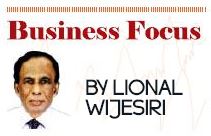Reply To:
Name - Reply Comment
Last Updated : 2024-04-27 00:40:00
 Years ago, a gunman murdered seven people in a fast-food restaurant i n a suburb of Chicago, USA. In his dual roles as an administrative head and spokesperson for the police department, Police Chief Walter Gasior suddenly had to cope with several different situations at once. He had to deal with the grieving families and a frightened community, help direct t he operations of an extremely busy police department and take questions from the media, which inundated the town with reporters and film crews. “There would literally be four people coming at me with logistics and media issues all at once,” he later recalled. “And in the midst of all this, we still had a department that had to keep running on a routine basis.”
Years ago, a gunman murdered seven people in a fast-food restaurant i n a suburb of Chicago, USA. In his dual roles as an administrative head and spokesperson for the police department, Police Chief Walter Gasior suddenly had to cope with several different situations at once. He had to deal with the grieving families and a frightened community, help direct t he operations of an extremely busy police department and take questions from the media, which inundated the town with reporters and film crews. “There would literally be four people coming at me with logistics and media issues all at once,” he later recalled. “And in the midst of all this, we still had a department that had to keep running on a routine basis.”
Add comment
Comments will be edited (grammar, spelling and slang) and authorized at the discretion of Daily Mirror online. The website also has the right not to publish selected comments.
Reply To:
Name - Reply Comment
US authorities are currently reviewing the manifest of every cargo aboard MV
On March 26, a couple arriving from Thailand was arrested with 88 live animal
According to villagers from Naula-Moragolla out of 105 families 80 can afford
Is the situation in Sri Lanka so grim that locals harbour hope that they coul

26 Apr 2024
26 Apr 2024